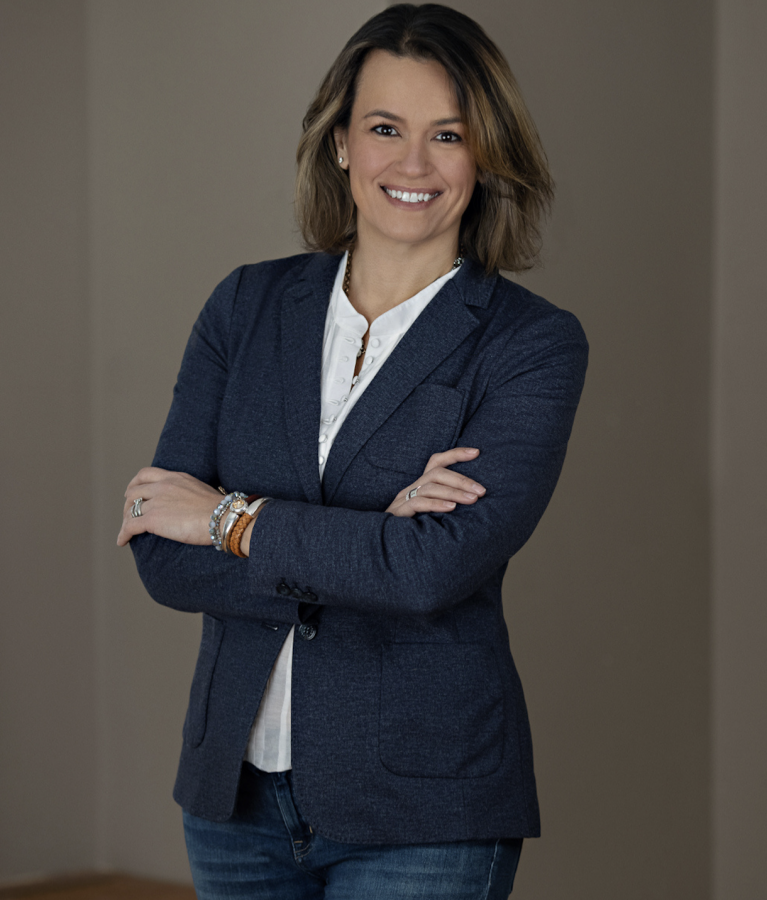Essaibi George will focus on the economy, education as mayor of Boston
Photo courtesy Annissa For Boston
If elected as Boston’s next mayor, City Councilor Annissa Essaibi George would be the first Arab and first former teacher to hold the position.
March 3, 2021
Boston’s next mayor will inevitably have to address a number of compounding issues, including systemic racism and racial inequality, as well as the health and economic crises brought on by the COVID-19 pandemic. For mayoral candidate and City Councilor Annissa Essaibi George, there’s only one way to confront these obstacles: together.
“To me, this work is very much about the collective. I have a hashtag, #GovermentIsATeamSport,” said the 47-year-old mother of four.
Essaibi George, a Boston native, joined the City Council in 2016, serving as an at-large member and as chair of the education committee. She announced her candidacy for mayor at the end of January, joining her colleagues Michelle Wu and Andrea Campbell in what is likely to be the most diverse race in the city’s history. So far, three candidates are women and people of color. If elected, Essaibi George would bring a number of “firsts” to the role, as the first Arab and first former teacher to hold the position, as well as the first duly-elected woman. Essaibi George acknowledged the gravity these “firsts” would have, but also recognized the importance of each candidate’s experience.
“Representation absolutely matters, but we do, in the end, want the mayor who can best serve in the best interest of the entire city,” she said. “So it’s racial diversity, it’s gender diversity, but it’s also diversity of experience. Exploring and understanding and investigating the experiences that each candidate brings is the most important component of looking and selecting who the next mayor would be.”
Part of Essaibi George’s experience that she believes would help her in this role is her 13 years as a Boston Public School, or BPS, teacher at East Boston High School.
“I think that teachers can do anything. If you can manage a classroom of 30 students on any given day, you’ve got a pretty good skill set to manage the work of a city,” she said.
Essaibi George also said her experience as a mother of four BPS students and as a BPS graduate herself means she already has the ability to “get into the weeds on education topics and academic topics.”
When it comes to education, Essaibi George said she would prioritize improving the program of study at Madison Park Technical Vocational High School, the Roxbury vocational high school that has consistently fallen into the state’s worst accountability ranking. Essaibi George also said she would hope to increase early education literacy and add a full-time nurse and a mental health professional in every school building.
Although she acknowledged that the city faces many competing crises that require serious attention, Essaibi George said that if elected, her top priority will be restoring Boston’s economy.
“As a city, and as the mayor of this city, it is certainly critical that those critical issues and challenges and faults in our systems are certainly dealt with head-on. For me, for sure the lead issue for our city is our local economy,” said Essaibi George. “When economic opportunity is the answer, we’re finding solutions to the problems in schools, in healthcare, in housing, in policing.”
Essaibi George said she would increase economic opportunity by making it easier for any industry to do business in Boston and by being more “creative and intentional” about creating centers of business across Boston’s neighborhoods, instead of only focusing on the downtown region.
“We’ve got to look to create economic opportunities across our neighborhoods, so not everybody needs to come into the downtown to work, so you can find work in Hyde Park, you can find work in Roslindale, or Jamaica Plain, or East Boston of Charlestown,” she said. “We have to make sure that we’re looking at all of the neighborhoods as opportunities for economic growth.”
As a small business owner herself, she also emphasized the need for the next mayor to focus on providing assistance to businesses working to recover from the impacts of the pandemic.
“We’re still going to see some businesses fail over the next couple of months, but for those that will be able to survive, we need to, as a city, double down on the supports that we put in place to help them through that last leg of the pandemic,” said Essaibi George.
She said that her own business, Stitch House, a yarn shop in Dorchester, has struggled during the pandemic, but acknowledged that she has more flexibility than most small businesses, as she owns the building her shop is in. “It gives me a great deal of flexibility, I’m not chasing myself around for rent,” she said.
As of the end of January, Essaibi George was behind her opponents in campaign fundraising, with $152,000 raised compared to Wu and Campbell’s respective $741,000 and $743,000. However, Essaibi George said she believes this is mostly the result of joining the race later than her colleagues.
“I think it’s about eight and seven months later than my colleagues, so if you think, though, about the timeline, I’m actually pretty close to them when you think about the percentage over time,” she said, adding that she continues to hit her fundraising benchmarks. “Running for mayor costs a lot of money, and as a little bit of an underdog in this race, I continue to earn additional support both financially and personally.”
Even as an underdog, Annissa Essaibi George is staying optimistic.
“I am so proud of the work that’s got me to this position, that I am a candidate for mayor — that I am a legitimate, top tier, high-quality, candidate for mayor — and I look forward to bringing experiences growing up in this city and my work to inform how I will lead this city in the future,” she said.


















